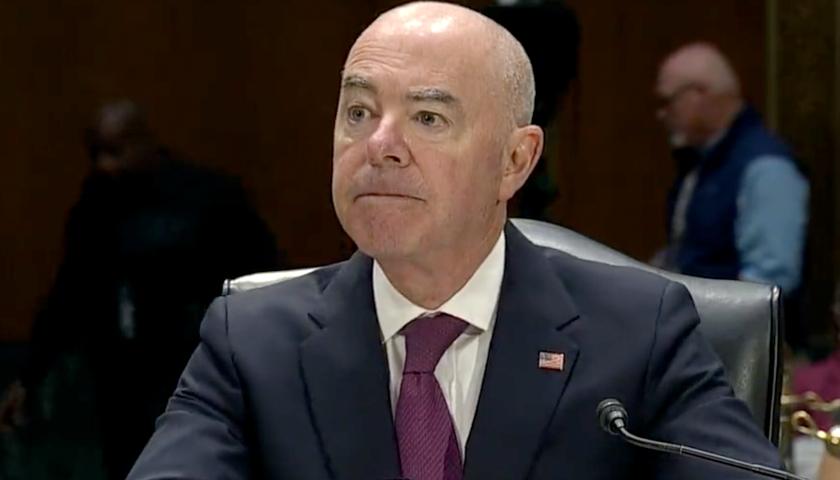By a vote of 32-0, Tennessee’s State Senate unanimously approved legislation that bolsters the Volunteer Public Education Trust Fund designed to assist the state’s K-12 public schools.
A notice released after the Senate floor vote said the bill, SB 0625, sponsored by Senator Bo Watson (R-Hixson), Chairman of the Senate Finance, Ways and Means Committee, “makes improvements to the fund’s structure to expand the pool of donors and create an endowment where the interest could be used to assist with improvements or projects outside a school’s normal funding stream.”
The release offered an explanation about the Fund by the bill’s sponsor, Senator Watson, “This fund was created in 1985 to be similar to the Tennessee Chairs of Excellence endowment which has been very successful for our colleges and universities.”
Senator Watson went further to describe the difference in performance between the higher education endowment and that of the K-12 fund, “While the Chairs of Excellence Fund has raised $395.5 million since its creation, the Volunteer Public Education Trust Fund for K-12 schools has only received $171,147.”
To address the many reasons the K-12 fund has not performed as well, including lack of information, marketing and management of the K-12 fund, Watson said, “This legislation restructures and modernizes it, so that we can renew interest and enjoy some of the success at the K-12 level that we have experienced raising private funds for public higher education needs.”
A main provision of the legislation expands the pool of donors authorized to contribute to the K-12 Volunteer Public Trust Fund from any person, association or corporation to also include any trust, partnership, firm, venture, agency, organization, governmental entity or political subdivision, including but not limited to state-appropriated funds or monetary gifts, grants or any other monetary aids received by the program from public or private sources.
The legislation also designates the State Treasurer and the State Commissioner of Education as the trustees, which Watson said mirrors the Chairs of Excellence Fund.
“The State Treasurer’s management of the K-12 fund will be a key factor in getting the fund into a position to move forward with those improvements.” Watson continued about the State’s Treasurer David H. Lillard, Jr., “As he has been with our other funds, the Treasurer will be very effective in making this fund more successful.”
Indeed, as he was re-elected through one of the first acts by the 111th Tennessee General Assembly to the post he has held as Treasurer since 2009, Lillard was praised for his contributions to the state’s financial position. As reported by The Tennessee Star, in making the motion to nominate Lillard, House Assistant Majority (Republican) Leader Ron Gant (R-Rossville), said of the Treasurer, “During his time in office and under his leadership, the Tennessee Department of Treasury has earned an investment income of approximately $34 billion to benefit Tennesseans.”
At the time, Lillard said Tennessee doesn’t have the largest gross domestic product or biggest economy of any state in the nation, “Yet we have an outsized reputation as one of the top three best financially managed states in the union.”
In the release about his legislation, Watson further described the process by which the K-12 Volunteer Public Education Trust Fund would operate, “The Treasurer’s office would take in contributions, and then build up a corpus where the interest can be used to help with extra projects or school needs,” likening it to the Education Lottery Fund.
The K-12 Volunteer Public Education Trust Fund also provides an opportunity for donors to earmark their contributions so that funds will be directed to the donor’s preference of specific local schools or projects.
Of this option for donors to direct the use of their contributions, Watson said, “If someone wants to be a benefactor for their own local schools or for a certain project or need, they can earmark those dollars for that purpose.”
Adding about the similar fund for higher education, Watson said, “This has been one of the main reasons the Chairs of Excellence Fund has been highly successful, and we want to ensure that donors know they can direct their gift locally or for a specific purpose.”
The Volunteer Public Education Trust Fund provides an avenue for those who think more funds need to be allocated toward K-12 public education, said Watson, “For those people who say we don’t invest enough tax dollars in K-12 education or for those who want to give to a particular need, this is an avenue for additional contributions to be made to our K-12 schools.”
Watson concluded, “I hope to see this fund grow and be used for many different needs across our state.”
The legislation requires that disbursements out of the K-12 Volunteer Public Education Trust Fund be restricted to Local Education Agencies (LEAs) that participate in the state’s BEP (Basic Education Program).
In addition to the legislation specifying how the accounts and subaccounts of the K-12 Volunteer Public Education Trust Fund are to be established, it lays out the authority of the trustees. The authority granted to the state’s Treasurer and Commissioner of Education as the trustees, includes:
- Developing a written plan for implementation;
- Developing investment policies for the investment of the money in the fund;
- Expending income from the fund;
- Establishing rules, policies, or guidelines relative to the expenditure of the income from the fund which may contain factors or criteria for disbursements and may include a competitive award process;
- Promoting, advertising, and publicizing the fund and the ability to develop partnerhships and agreements with and among state agencies, local governments, non-profit organizations and private entities;
- Raising funds and soliciting contributions;
- Requesting information from any branch, department, division, board, bureau, commission, or other agency of the state or any entity that receives state funds that will enable performance of the duties of the trustees;
- Contracting for the services necessary for the management, operation, promotion, advertisement and publicizing of the fund; and
- Entering into donor agreements with public or private individuals or entities contributing to the fund.
The companion House Bill HB0681, sponsored by freshman Representative Esther Helton (R-East Ridge) currently has six co-sponsors, passed out of its first stop at the House Education Administration Subcommittee and is scheduled to be heard in the full House Education Committee on March 20 at 8:30 a.m.
The fiscal note on the bill is indicated as “not significant,” as it will not result in significant administrative or operational impact on the state’s Treasurer or Department of Education in executing the oversight of the fund.
The legislation specifics that act will take effect upon becoming law.
The full text of the release from the State Senate follows.
Legislation bolsters state’s Volunteer Public Trust Fund to expand donors to state’s K-12 public schools
For Immediate Release Contact: Darlene Schlicher (615) 741-6336
(NASHVILLE), March 14, 2019 — Legislation that will bolster the state’s Volunteer Public Education Trust Fund to help K-12 public schools received final approval in the Senate on Thursday. Senate Bill 625, sponsored by Senate Finance, Ways, and Means Committee Chairman Bo Watson (R-Hixson), makes improvements to the fund’s structure to expand the pool of donors and create an endowment where the interest could be used to assist with improvements or projects outside a school’s normal funding stream.
“This fund was created in 1985 to be similar to the Tennessee Chairs of Excellence endowment which has been very successful for our colleges and universities,” said Sen. Watson. “While the Chairs of Excellence Fund has raised $395.9 million since its creation, the Volunteer Public Education Trust Fund for K-12 schools has only received $171,147.”
“There are a lot of reasons why this fund has not performed as well,” Watson continued. “This includes lack of information, marketing, and management of the fund. This legislation restructures and modernizes it, so that we can renew interest and enjoy some of the success at the K-12 level that we have experienced raising private funds for public higher education needs.”
The legislation expands the pool of donors authorized to contribute to include public entities, in addition to private individuals and entities. The money would be distributed through competitive grants. It also designates the State Treasurer and the State Commissioner of Education as the fund’s trustees, restructuring it to mirror the Chairs of Excellence Fund. Watson said the State Treasurer’s management of the fund will be a key factor in getting the fund into a position to move forward with those improvements.
“As he has been with other funds, the Treasurer will be very effective in making this fund more successful,” Watson continued. “The Treasurer’s office would take in contributions, and then build up a corpus where the interest can be used to help with extra projects or school needs.”
Watson said they also hope to build up an endowment, much like the state Education Lottery Fund, where the earnings on interest are the primary source of funding.
The Tennessee Volunteer Public Education Trust Fund provides an opportunity to direct donations to local schools or projects. Contributions can be placed in subaccounts where the money is earmarked by the donor for a specific purpose or project.
“If someone wants to be a benefactor for their own local schools or for a certain project or need, they can earmark those dollars for that purpose,” he added. “This has been one of the main reasons the Chairs of Excellence Fund has been highly successful and we want to ensure that donors know they can direct their gift locally or for a specific purpose.”
“For those people who say we don’t invest enough tax dollars in K-12 education or for those who want to give to a particular need, this is an avenue for additional contributions to be made to our public K-12 schools. I hope to see this fund grow and be used for many different needs across our state.”
– – –
Laura Baigert is a senior reporter at The Tennessee Star.
Photo “Bo Watson” by Bo Watson.





